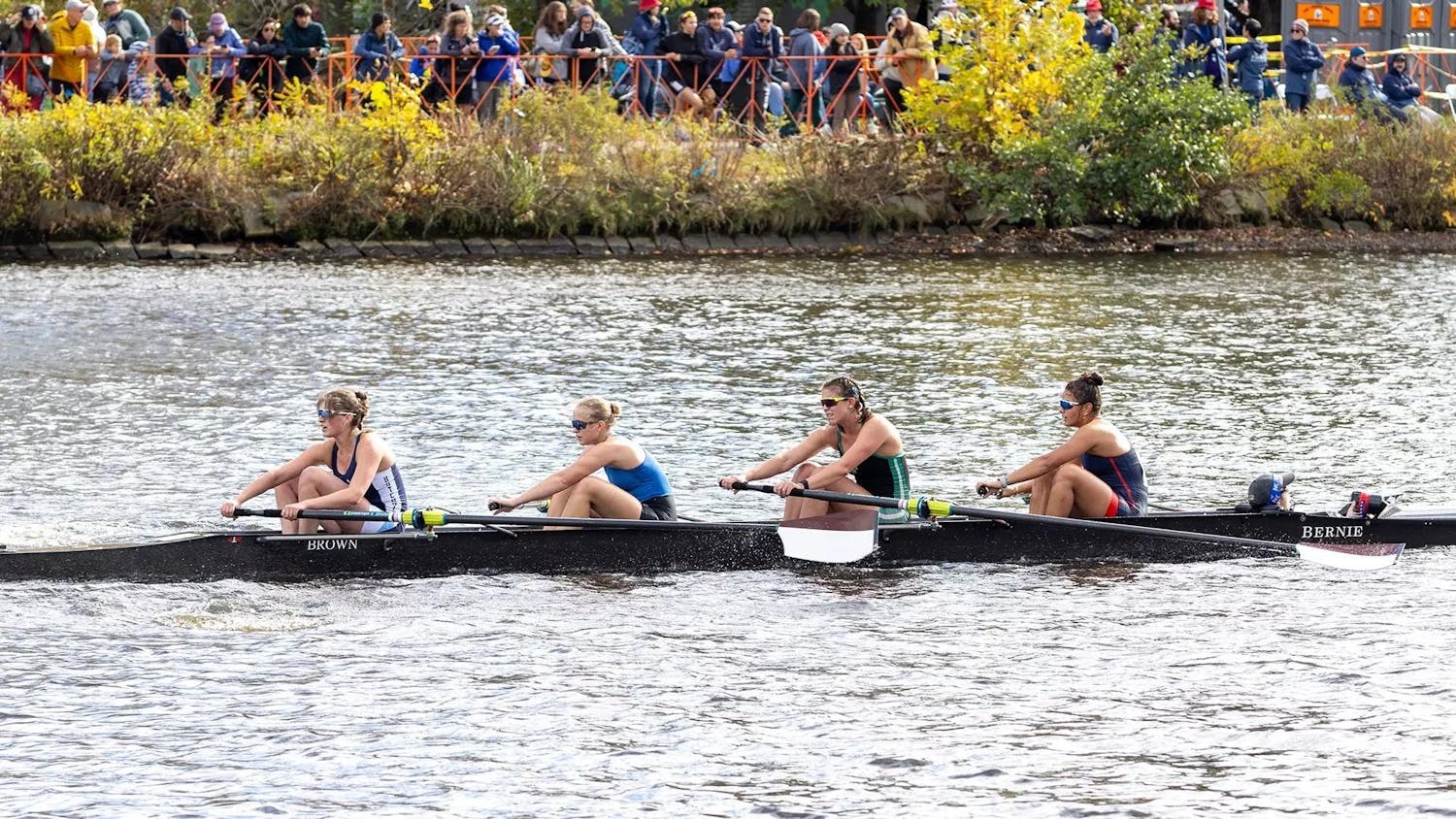Football fans love a big hit. But when that hit is a helmet-to-helmet collision, it can have major consequences: a concussion or even the possibility of long-term brain damage.
To reduce the risk of head injuries, the Ivy League announced July 20 that it will slash the number of full-contact practices its football teams can hold each week. Under NCAA rules, teams can have up to five full-contact practices per week, but the Ivy League will now only allow two full-contact practices per week.
Out of concern for head injuries, the Bears had already voluntarily limited their full-contact practices to the levels permitted by the new rules, said Head Coach Phil Estes.
Since 2007, the football team has been playing with sensors in most players' helmets that measure how hard, how fast and where impacts occur. "We're going to put that together to see if it's the number of hits or if it's the impact" of each hit that contributes to brain damage, Estes said.
The new league rules only allow teams to hold full-pad sessions during both sessions of two-a-day practices once during the preseason. The league also reduced the number of allowed full-contact practices in the spring from eight to seven.
Estes said he hopes other NCAA conferences will follow the Ivy League's example. "I think it's something that we need to do, as a league, to show other leagues," he said. "I think the Ivy League is at the forefront."
The changes came in response to a study of three Division I football teams published last year in the Journal of Athletic Training, which found that — though players take more hits to the head per game than per practice — they suffer more overall hits during practice because teams practice more frequently than they compete.
Following the study's release in the periodical's November-December 2010 issue, the league formed an ad-hoc Concussion Committee in December, which conducted its own investigation. The committee was composed of football coaches, athletic trainers, directors and administrators, as well as team physicians, medical experts and two Ivy League presidents.
Estes and former Brown football player Sean Morey '99, who played in the National Football League and is now co-chair of the NFL Players Association's Mackey-White Traumatic Brain Injury Committee, served on the committee.
There is growing concern that big hits lead to long-term brain damage, Estes said. This concern, coupled with the study's findings, led the committee to limit the number of full-contact practices for the safety of the players, he said.
Offensive lineman Luke Landers '12, who said he doesn't think he's "played a down of football at Brown without one of those sensors in (his) helmet," expressed support for the league-wide change.
"I think it's definitely awesome that they're trying to protect us as best they can and most importantly educate us and keep us healthy as players," he said. "Whenever you know better, you do better."
But the new rules will present new challenges for coaches. In addition to the limitations now set on full-contact practices, the league is also urging coaches to emphasize proper tackling.
"We need to keep the head out of the tackling and out of the blocking as much as we possibly can," Estes said. "You must do a better coaching job."
"It's not the same game we played 30, 40 years ago, where more contact was better," Estes said. "We used to have steak and potatoes before a game. We didn't digest that well, but that was the thought, that it would make you play better. We're going to see the game of football changing. I think that's a good thing."
But football is still a sport that requires grown men to tackle one another. "I definitely think that head injuries aren't going anywhere," Landers said. "Big hits are a part of the game of football. People will still have concussions. But I think using different rulings like this will definitely reduce the number of big hits and will make players a lot more conscious of the decisions they're making on the field."




